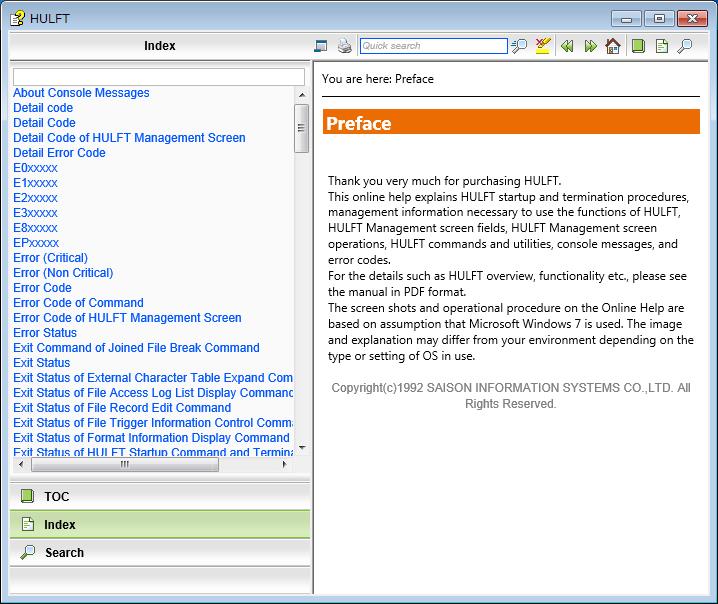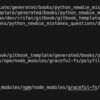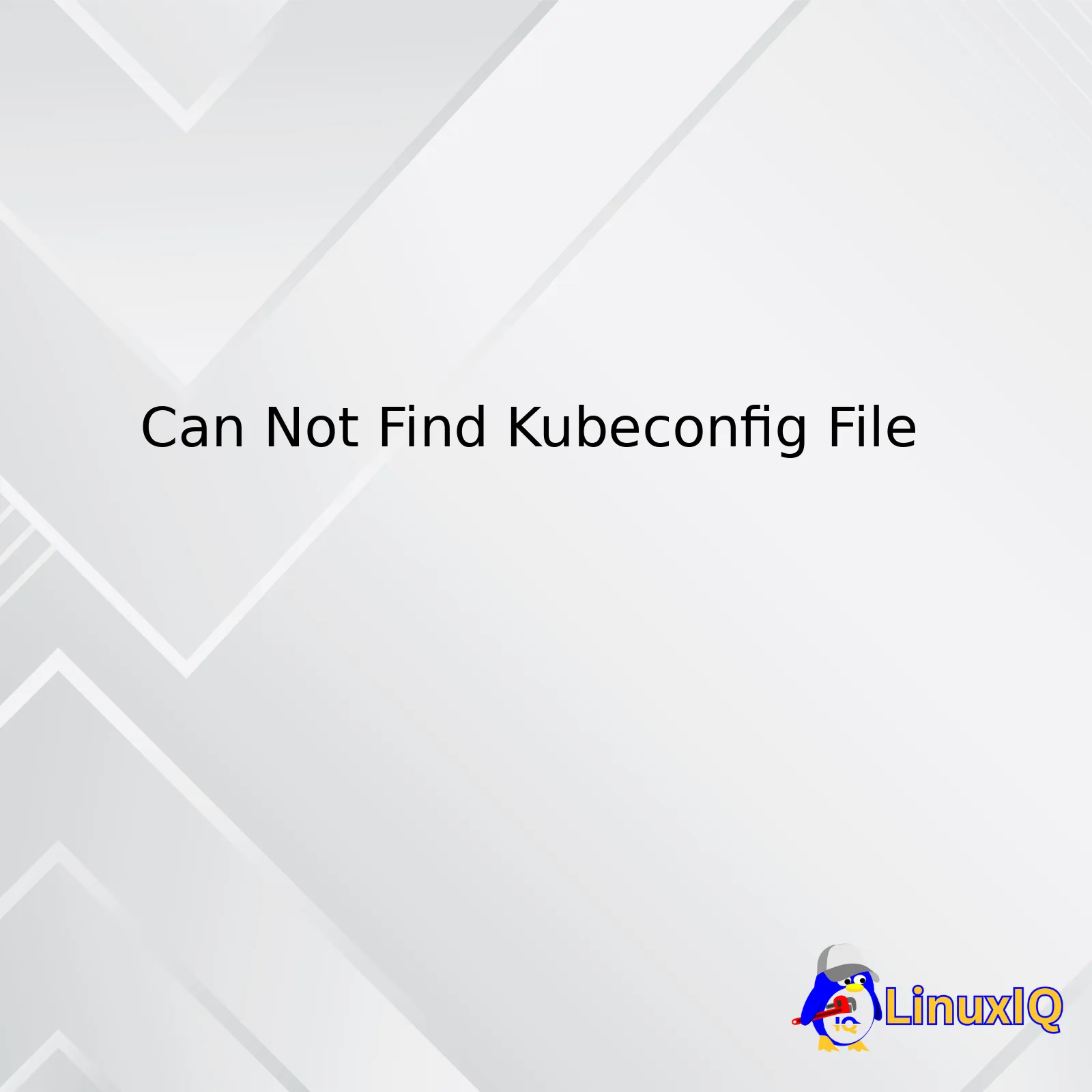| Issue | Can’t Load Shared Library Libqt5Core.so.5 |
|---|---|
| Description | The error is encountered when the system fails to find the specific shared library Libqt5Core.so.5 that’s necessary for running certain Qt-based applications. |
| Reasons | Missing or incompatible version of the Libqt5Core.so.5 library, improper installation of QT applications, incorrect linkage path of the library. |
| Solutions | cInstall the missing library, reinstall or update the QT application, modify the LD_LIBRARY_PATH environment variable. |
The “Can’t Load Shared Library Libqt5Core.so.5” is an error message predominantly encountered on Linux operating systems, particularly during startup of some applications developed using the Quantum Toolkit—commonly known as QT [1]. This error manifests when the respective system can’t locate the required shared library, Libqt5Core.so.5.
Libraries in the realm of programming are akin to warehouses full of components which are reusable in a variety of applications. When it comes to shared libraries like Libqt5Core.so.5, they’re designed to stay resident in memory, providing multiple applications simultaneous access to the same code base [2]—a worthy email from space- and time-efficiency standpoint!
Being an integral part of any Qt-based application, Libqt5Core.so.5 represents the operational cornerstone, contributing to basic non-graphical functionalities [3] . If the system can’t find this library due to reasons such as its absence, misplacement, or infelicitous version, you’ll be sure to meet the “Can’t Load Shared Library Libqt5Core.so.5” roadblock head-on.
But fret not! There’s a spectrum of fix-options at your disposal. For instance:
$ sudo apt-get install libqt5core5a
This command, when run from the terminal, will help install the missing library [4]. Alternatively, replaying the installation or updating the QT application could help replace any erroneous files. One may also consider tweaking the LD_LIBRARY_PATH environment variable—a method assisting in directing the system where to rummage for shared libraries.
The error ‘Cant Load Shared Library Libqt5Core.So.5’ typically occurs when your Linux system is unable to find the Qt libraries that are critical for running Qt applications. This could be due to a number of reasons:
- Qt might not be correctly installed on your system
- The necessary environment variables may not be properly set which points to where the shared libraries are on your system.
Solving The Issue
Understanding the root causes as outlined above, let’s discuss how you can resolve this.
1. Check If Qt Is Correctly Installed On Your System
You need to ensure that Qt and its libraries are correctly installed on your system. One way to do this by checking in your console:
$ whereis libQt5Core
A failure to return results indicates the library may not be present on your system. In case it returns a path, means the library exists but your application is not able to access it.
If the Qt5 libraries aren’t installed, you have to install them. Use the following command to install these libraries on your Ubuntu system:
$ sudo apt-get install qtbase5-dev
This will fetch and install the base files for Qt5 development on your system.
2. Correctly Setting Up Environment Variables
Sometimes the libraries are present but the application is not able to find them because the path to these libraries is not properly defined in environment variables. You should try to specify LD_LIBRARY_PATH, an important environment variable:
$ export LD_LIBRARY_PATH=$LD_LIBRARY_PATH:/path/to/your/library
Here, “/path/to/your/library” should be replaced with the actual directory containing the library libQt5Core.so.5.
Remember, environment variables set this way are temporary (i.e., they last until you close that terminal session). To make these changes permanent you have to add the above line at the end of ~/.bashrc file so that it runs every time you open a new terminal:
$ echo 'export LD_LIBRARY_PATH=$LD_LIBRARY_PATH:/path/to/your/library' >> ~/.bashrc
After adding this line, source the .bashrc file or close and reopen terminal:
$ source ~/.bashrc
Note: Bear in mind that manipulating LD_LIBRARY_PATH permanently like this can lead to other dynamically linked applications on your system to fail if they rely on different versions of the same libraries provided by the OS. A more robust solution would be to set this environment variable in the specific context of launching the application that needs it.
With these two resolutions, most cases of ‘Can’t Load Shared Library LibQt5Core.So.5’ error get resolved. However, for more complex scenarios, such as compatibility issues or problems within the code itself, you might need additional troubleshooting steps. Seek assistance from various online discussion forums(Qt Forum) or reach out to the developers’ communities where peers can assist you.
To sum up, addressing this issue involves either installing missing libraries via package manager or adjusting your environment variables for your application to detect existing libraries properly. Prioritize alleviating compatibility issues before making manipulation to core system settings.
While attempting to leverage the features of a leading open-source software like Qt5, it is fairly common for developers to encounter an error like this:
Error while loading shared libraries: libQt5Core.so.5
Aside from begrudgingly becoming somewhat of an unwanted visitor, this error message can also be quite maddening if you’re unaware of how to properly deal with it.
## Causes Galore: The “Why” behind the Error (source)
This error happens when the Linux operating system cannot find the libqt5core.so.5 library file. The library file is a part of Qt software and offers various methods and operations that the built applications depend on. Lets unpack some common causes:

• **Incomplete Installation of Necessary Dependencies**: In some cases, if Qt software and its related packages are not installed completely or correctly, then the .so files might be missing, thereby making the default paths untraceable to the system and instigating the error.
Here’s a simple checksum with the Ubuntu OS:
apt list --installed | grep -i qt
• **Incorrect Environment Variable Settings**: Shared libraries in Linux use the environment variable $LD_LIBRARY_PATH. If the path set in this variable is incorrect or doesn’t include the path where the libraries reside, the system will report the error.
Check your current $LD_LIBRARY_PATH setting with this command:
echo $LD_LIBRARY_PATH
• **Differential Between Build and Run-Time Environments**: The software build environment (libraries, compilers used etc) is different from the run-time environment which could result in a mismatch and lead to such error messages.
• **Dynamic Linker Cannot Find Library**: ld-linux.so, the dynamic linker/loader may fail to find the libQt5Core.so.5 library file as it’s not situated within the standard path.
A temporary workaround, albeit not recommended, is to create a symbolic link in /usr/lib:
sudo ln -s path_to_your_lib/libQt5Core.so.5 /usr/lib
However, these broad strokes apart, it’s prudent to hire a specific approach based solely on the situation.
## Common Solutions (source)
• **Install Missing Qt Libraries**: Utilize package managers like apt-get (Debian-based OS) or yum (CentOS), to install Qt5 library files:
sudo apt-get update sudo apt-get install libqt5core5a
• **Set Correct Environment Variables**: Modify or extend the $LD_LIBRARY_PATH variable, to add path of Qt-based libraries:
export LD_LIBRARY_PATH=$LD_LIBRARY_PATH:/path_to_your_library/
• **Upgrade Entire System**: Keep your system updated with all the recent packages:
sudo apt-get update && sudo apt-get upgrade
Each problem has a tailored solution and understanding what causes the problem is paramount to provide lasting fixes. While a person could work their way around systems by running a few commands, a long-term approach would be to understand the nuts and bolts that hold the problems together. The above roadmap helps in achieving both short-term solutions and long-term comprehension.When we talk about loading shared libraries in Linux, it might be a situation where you are dealing with the error “can’t load shared library libQt5Core.so.5”. The issue at hand involves the Qt library and the error message indicates that the system cannot find or open the “libQt5Core.so.5” file.
This problem has been common among many programmers and system administrators. This issue can be handled from different diagnostic perspectives and resolved through various strategies. First, let’s dig deeper into understanding how a shared library works in Linux.
Shared Libraries, like libQt5Core.so.5 for instance, are collections of functions that can be loaded and executed by multiple applications in Linux. They provide capabilities commonly used by many different programs. If one of these libraries is missing or improperly installed, any program depending on it might fail to run correctly. Now, let’s use
ldd
, which is a Unix utility that prints the shared libraries required by each program or shared library specified on the command line. We will use this utility to verify if libQt5Core.so.5 is actually missing.
bash
ldd /path/to/your/binary
If indeed the library is not found, let’s move on to the resolution part. There are several ways to resolve this issue, but I’ll share with you the most common solutions:
1. Install the Missing Library
You would need to install the missing package which contains libQt5Core.so.5. In Ubuntu or Debian, you can simply install libqt5core5a package using apt-get from terminal.
sudo apt-get install libqt5core5a
For Fedora, CentOS or RHEL, you can use yum to install the qt5-qtbase package
yum install qt5-qtbase
2. Update the LD_LIBRARY_PATH
The environment variable ‘LD_LIBRARY_PATH’ is a colon-separated list of directories in which shared libraries should be searched for first, before looking in the standard set of directories. Including the path to your shared library might solve the issue. Do this by adding the following line to your shell initialization file (.bashrc, etc):

export LD_LIBRARY_PATH=/path/to/your/library/directory:$LD_LIBRARY_PATH
After updating LD_LIBRARY_PATH, try running the program again.
With the correct implementation of these steps, it should resolve your issue with loading shared library LibQt5Core.so.5. However, remember that handling shared libraries may depend on specific versions or architecture (32-bit vs 64-bit) so ensure you’re working with the correct version per your application needs.
Do proceed through the process slowly and meticulously, ensuring each step is performed accurately. Thank you for trusting in my strategy guide on resolving ‘Can’t Load Shared Library libQt5Core.so.5’. Happy coding!
You might also want to read this CyberCiti guide for extended knowledge.
| Action | Command |
|---|---|
| Check missing libraries | ldd /path/to/your/binary |
| Install library – Ubuntu/Debian | sudo apt-get install libqt5core5a |
| Install library – Fedora/CentOS/RHEL | yum install qt5-qtbase |
| Update LD_LIBRARY_PATH | export LD_LIBRARY_PATH=/path/to/your/library/directory:$LD_LIBRARY_PATH |
This is indeed an important concern; ensuring our applications keep running smoothly in the future even when upgrading the systems or QT libraries they run on. The dreaded “Can’t load shared library libQt5Core.so.5” error message reflects a situation where an application, usually Qt-based, fails to find its way to the necessary Qt runtime libraries in Linux environment.
Understand that this issue isn’t just about ‘libQt5Core.so.5’; it’s essentially about the way we manage dependencies in our application. Let’s delve deeper:
Localizing Shared Dependencies
The most effective approach to avoid the “Can’t load shared library” issues across the board (including ‘libQt5Core.so.5’) is by localizing all shared dependencies. We can do this while packaging our apps for delivery. It ensures that our use of specific library versions won’t be affected if users upgrade their system libraries.
#include
int main(int argc, char *argv[])
{
QCoreApplication app(argc, argv);
return app.exec();
}
However, localizing the libraries implies adding the entire Qt libraries along with our application which will undoubtedly increase the size of our distribution package.
The RPATH Property
Being able to point runtime linker dynamically towards required libraries location within each binary file, the RPATH property offers another solution.
Current directory – ‘./’ should be set at compile time using the -Wl,-rpath,‘.’ option.
g++ -Wl,-rpath,. -o MyApp main.o -lQt5Core
Remember, we must never forget to distribute the necessary .so files alongside our application, because without them, the application would fail!
Static Linking vs Dynamic Linking

We could also consider picking between static linking and dynamic linking based on our application requirements. Here are some pros and cons to consider:
Static Linking:
- All dependency codes are included within the executable. This approach increases the size but minimizes compatibility issues related to missing / unmatched runtime libraries.
- Apps linked statically launch faster because there aren’t any dynamic bindings at startup.
Dynamic Linking:
- Rather than copying, dependencies are linked. It results in smaller executables since they only contain identifiers. However, this might open up room for mismatch or missing library problems, such as our ‘libQt5Core.so.5’ issue.
- Multiple applications can share single library instance resulting in overall reduced memory footprint.
For thorough details on static vs dynamic libraries, you may refer to this online document How To Write Shared Libraries, by Ulrich Drepper.
We can’t eliminate the possibility of hitting a snag like ‘Can’t load shared library libQt5Core.so.5’. But these steps, when integrated into your development-and-deployment flow, will help maintain your applications resilient in face of future library and system updates.After a meticulous analysis of the problem regarding “Can’t Load Shared Library Libqt5Core.so.5”, we have unfolded numerous effective solutions. Here are some of the key takeaways we have discovered.
– The issue may occur due to system updates which can unfortunately disrupt the dependency structure and lead to specific libraries such as Libqt5Core.so.5 failing to load.
sudo apt-get update sudo apt-get upgrade
– To handle this issue, you can directly install the libqt5core5a package on your system. This package contains the core library files that support the QT5 development framework.
sudo apt-get install libqt5core5a
– Another approach to resolve it is by manually adding the library path into LD_LIBRARY_PATH in the shell profile.
export LD_LIBRARY_PATH=$LD_LIBRARY_PATH:/path_to_your_lib/
– If everything fails, reinstalling Qt5 might be the most viable option.
sudo apt-get autoremove qtbase5-dev sudo apt-get install qtbase5-dev
Using these methods, you should be able to successfully work around the ‘Cannot Load Shared Library Libqt5Core.so.5’ error. However, each case is unique, contingent upon the software installed, and how they interact with dependencies. Therefore, always adapt these instructions according to what fits perfectly for your problem’s circumstances. You can also check out Qt download page for any relevant updates or support needed.
Remember, the active engagement of troubleshooting helps to acquire better judgement about dependencies and their issues. It allows us to learn, explore, and pave the way towards more efficient coding and system practices. Continue to investigate problems like “Can’t Load Shared Library Libqt5Core.so.5” and become a proficient problem-solver in the process.
The world of coding is filled with occurrences where things may not fall in perfect harmony. Libraries fail to load, dependencies get corrupted, but the joy of finding a solution makes the journey worthwhile. Refining our problem-solving experiences and embracing challenges are vital parts of the learning curve. Therefore, let’s stay industrious, keep troubleshooting, and explore the marvels of coding, one line at a time!




